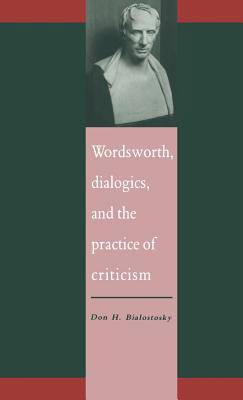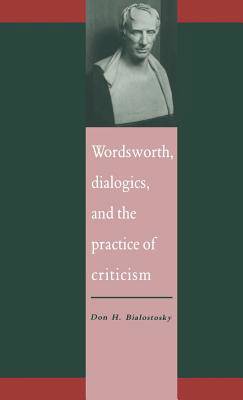
- Afhalen na 1 uur in een winkel met voorraad
- Gratis thuislevering in België vanaf € 30
- Ruim aanbod met 7 miljoen producten
- Afhalen na 1 uur in een winkel met voorraad
- Gratis thuislevering in België vanaf € 30
- Ruim aanbod met 7 miljoen producten
Zoeken
Wordsworth, Dialogics and the Practice of Criticism
Don H Bialostosky
€ 224,95
+ 449 punten
Uitvoering
Omschrijving
In recent decades, Wordsworth's poetry has become a point of focus for a great many of the proliferating schools of criticism and theoretical paradigms that dominate modern literary studies. Don Bialostosky here addresses the problem that the multiplicity of criticism has outrun the capacity to respond to it, often leaving teaching practices behind in their reflection of older models of literary study. Bialostosky's method draws on the work of Bakhtin and his followers to create a "dialogic" critical synthesis of what Wordsworth's readers--from Coleridge to de Man--have made of his poetry. He reveals an understanding of Wordsworth's poetry as itself "dialogically" responding to its various contexts, and opens up fruitful possibilities for current criticism and teaching of Wordsworth. This challenging book uses the case of Wordsworth studies to make a far-reaching survey of modern literary theory and its implications for the practice of criticism and teaching today.
Specificaties
Betrokkenen
- Auteur(s):
- Uitgeverij:
Inhoud
- Aantal bladzijden:
- 320
- Taal:
- Engels
- Reeks:
- Reeksnummer:
- nr. 2
Eigenschappen
- Productcode (EAN):
- 9780521412490
- Verschijningsdatum:
- 28/02/1992
- Uitvoering:
- Hardcover
- Formaat:
- Genaaid
- Afmetingen:
- 140 mm x 216 mm
- Gewicht:
- 553 g

Alleen bij Standaard Boekhandel
+ 449 punten op je klantenkaart van Standaard Boekhandel
Beoordelingen
We publiceren alleen reviews die voldoen aan de voorwaarden voor reviews. Bekijk onze voorwaarden voor reviews.











